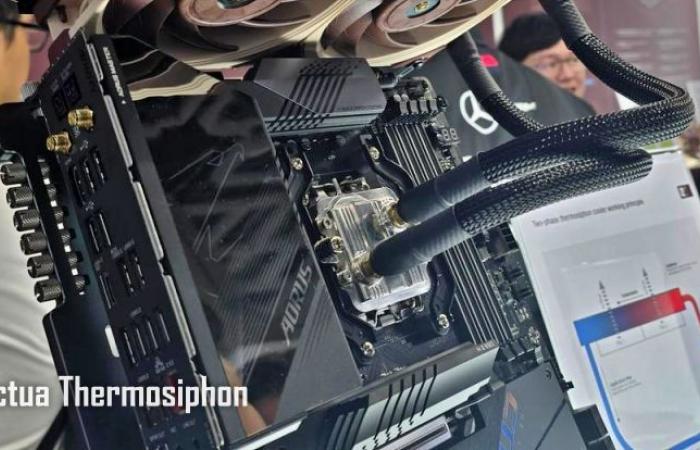Noctua presented a prototype of what would be its first liquid heatsink with thermosiphon, he Noctua Thermosiphonwhich lacks a pump to operate.
Noctua Thermosiphon: AIO heatsink with thermosiphon technology
We had already talked about this type of heatsinks AIO based on thermosiphon in March of this year with the prototype of the German manufacturer Wielandbut now it’s the turn of Noctua, which is one of the most important manufacturers of PC cooling solutions in the world.
This heatsink stands out for not having a pump to distribute the cooling liquid. The absence of a pump simplifies this type of cooling, as well as making it quieter than any other liquid cooling system.
The thermosiphon method of “Noctua Thermosiphon” It is a passive heat exchange based on natural convection, which allows a cooling liquid to circulate without the need for a pump. In the case of the Noctua system, this process consists of two phases. In the first phase, the fluid is heated, causing it to evaporate and circulate through density differences. The evaporated fluid moves through a tube to a condenser, where it cools and returns to liquid form. The liquid then flows back to the evaporator and the cycle repeats infinitely. In this way, a pump is not necessary to distribute the coolant liquid from one side to the other.
We recommend our guide on the best AIO heatsinks on the market
Noctua collaborated with an aviation refrigeration company called Calyos to develop this thermosiphon project. They also warn that a cooling system like this requires that the radiator must always be mounted on top for it to function optimally.
Being a prototype, we still do not know when the first commercial model will be released by Noctua. We will keep you up to date with all the news.






